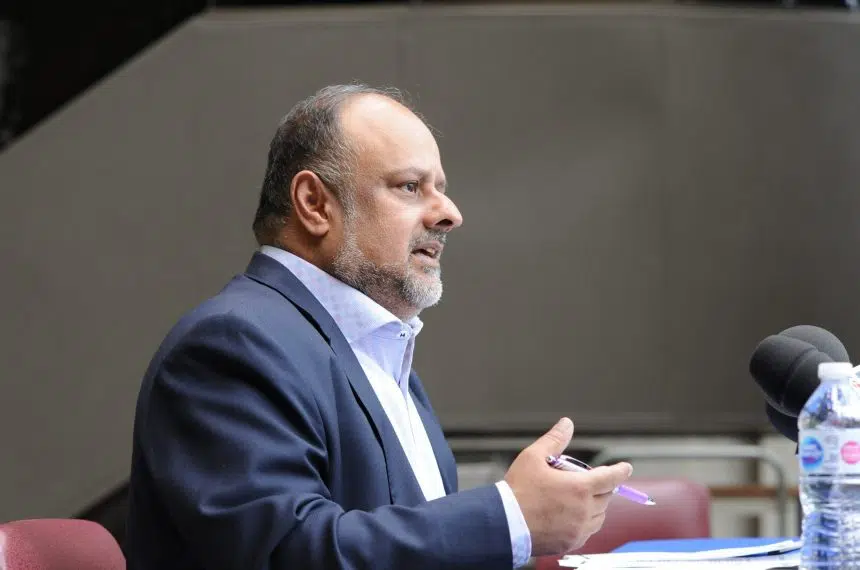Saskatchewan has recorded four new presumptive cases of COVID-19, bringing the province’s total so far to 20.
In a media release Thursday, the government said eight cases now have been confirmed by the National Microbiology Laboratory in Winnipeg while 12 of the cases remain presumptive.
The province said three of the new cases are related to travel and one is a close contact of a previously reported case.
Nineteen of the 20 cases are well enough to self-isolate at home. One of the presumptive cases is in hospital for medical reasons that aren’t related to COVID-19.
Dr. Saqib Shahab, the province’s chief medical health officer, said he’s been having conversations about what else might need to be done — talking about things like daycares, and whether the number of people allowed at a gathering should be restricted even further.
Shahab noted Thursday that other provinces are getting more restrictive.
“We’ll have to see, based on where we are at, should we move to that early? Maybe this week? Or see where we are in terms of our cases,” said Shahab.
Any new restriction would have to be looked at carefully, according to Shahab. He said they’d have to be assessed as to whether they’d prevent further transmission and whether it would affect people’s abilities to get needed services.
Some other jurisdictions are having difficulty getting their hands on enough tests. Testing for COVID-19 in Saskatchewan has jumped with the opening of assessment centres, but Shahab said Saskatchewan is OK.
“At this point, things are going well, but I can foresee that at a future time there may be some pressures in which testing may have to be prioritized for, either people who have more severe symptoms, or people who have to get back to work if they’re negative, like health care,” he said.
Shahab said with the spread of the virus, at some point, it could become less and less relevant to get tested if you have just mild symptoms.
Shahab has put out the warnings several times and they have become familiar to people around the world by now: Monitor yourself for even mild symptoms like a slight fever or a small cough and self-isolate if you do become sick.
For those who want to go to a doctor or the hospital because they’re sick, Shahab warned that they need to tell the place they’re coming first.
“If you haven’t pre-announced that you have a cough or fever you then expose the health-care provider and maybe other groups,” said Shahab.
On Wednesday, the provincial government declared a state of emergency as it looks to stop the spread of the virus. It set out a number of steps in that vein, including:
• Prohibiting public gatherings larger than 50 people;
• Closing all gyms, fitness centres, casinos and bingo halls;
• Limiting all restaurants, bars and event venues seating to 50 per cent of capacity or up to a maximum of 50 people, whichever is less. The venues must be able to ensure social distance of one to two metres between customers. Grocery stores, pharmacies and gas stations are exempt from this policy but must have processes to maintain a one- to two-metre separation between customers.
Travellers who are returning to Canada are required to self-isolate for 14 days, as are people who have been in close contact with a person with COVID-19. So are individuals who have been diagnosed with COVID-19 but are well enough to stay at home.
“If a member of your household is self-isolating, they should make every effort to stay apart from the other members of that household,” the government said in a media release. “This includes separate sleeping areas and bathrooms, if possible.”
Those who are sharing living space with someone who is self-isolating are required to self-monitor, which means watching for symptoms such as a fever or cough. If those symptoms develop, self-isolation is necessary.
The province has an online self-assessment tool for those who are wondering if they need to be tested.











